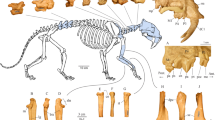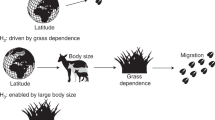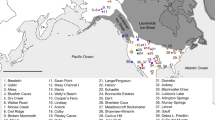Abstract
THE Island of Porto Santo, one of the Madeira group, is probably best known to biologists on account of the famous rabbit still found commonly there. Darwin showed that the animal differed conspicuously from the English rabbit, and inferred that it had evolved into a new race since its introduction into the island some hundreds of years ago. Haeckel gave it a distinctive name, Huxleyi. It is, indeed, a distinct race or subspecies from the English rabbit, but zoologists had failed to observe that it was identical with the Lusitanian animal, which had not then been segregated by them. Thus the Porto Santo rabbit loses its importance as evidence of evolution, being, in fact, the South European subspecies of Oryctolagus cuniculus.
This is a preview of subscription content, access via your institution
Access options
Subscribe to this journal
Receive 51 print issues and online access
$199.00 per year
only $3.90 per issue
Buy this article
- Purchase on Springer Link
- Instant access to full article PDF
Prices may be subject to local taxes which are calculated during checkout
Similar content being viewed by others
Author information
Authors and Affiliations
Rights and permissions
About this article
Cite this article
COCKERELL, T. Natural History of Porto Santo. Nature 107, 10–11 (1921). https://doi.org/10.1038/107010a0
Issue Date:
DOI: https://doi.org/10.1038/107010a0
Comments
By submitting a comment you agree to abide by our Terms and Community Guidelines. If you find something abusive or that does not comply with our terms or guidelines please flag it as inappropriate.



